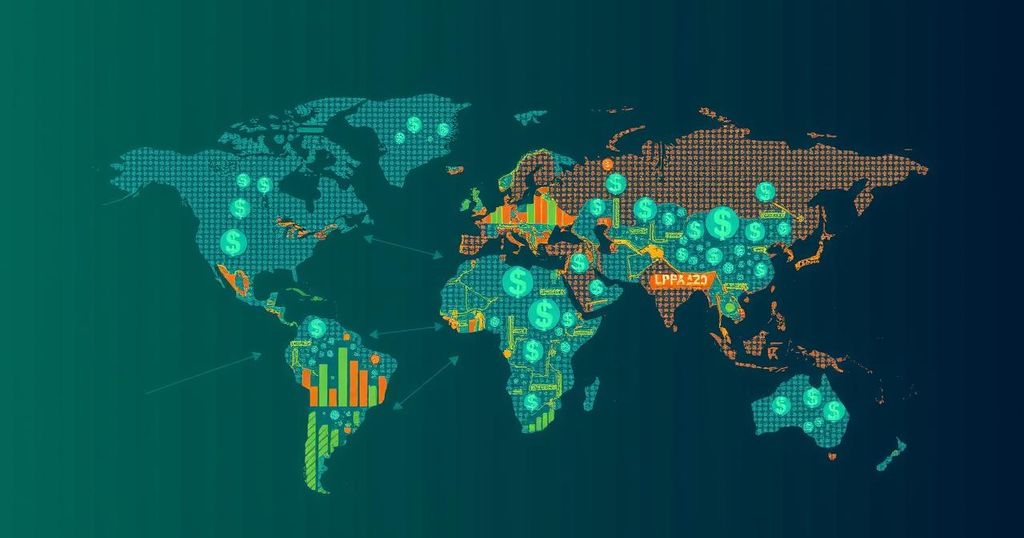Climate change
ASIA, AZERBAIJAN, CLIMATE CHANGE, CLIMATE JUSTICE, ENVIRONMENTAL POLICY, EUROPE, GERMANY, GREENHOUSE GAS EMISSIONS, INDIA, INSTITUTIONAL INVESTORS GROUP, INSTITUTIONAL INVESTORS GROUP ON CLIMATE CHANGE, PARIS AGREEMENT, STEPHANIE PFEIFER, SUSTAINABLE DEVELOPMENT GOALS, UK, UN, WORLD RESOURCES INSTITUTE
Jamal Walker
0 Comments
COP29: A Critical Turning Point for Climate Financing and Responsibility
COP29 in Baku aims to establish a new financial commitment for climate aid to developing countries, replacing the $100 billion annual pledge that expires soon. Discussions center on raising the target to $500 billion to $1 trillion annually, and possibly beyond, to effectively support nations facing climate challenges. Calls are being made for expanded contributions from richer nations as well as private capital, while criticisms focus on the responsibility of high-emission countries and corporations to contribute proportionately.
This week, approximately 50,000 stakeholders, including government officials, policymakers, and environmental advocates, will convene in Baku, Azerbaijan, for the UN’s COP29 climate talks, aimed at addressing climate finance needs for developing nations. With the current climate financing pledge of $100 billion, established in 2009, set to expire, discussions will focus on establishing a new annual financing target, possibly ranging from $500 billion to $1 trillion annually, with some estimates reaching as high as $5 trillion. A growing consensus emerges that existing funds are insufficient to help vulnerable countries address the escalating effects of climate change. As emphasized by the World Resources Institute, “Setting a more ambitious goal will be essential to helping vulnerable countries adopt clean energy and other low-carbon solutions and build resilience to worsening climate impacts.” Calls are expected to expand the roster of contributing nations to include rapidly developing economies that have significantly increased their emissions, such as China and India. To achieve the needed financial support, the conference will likely advocate for reforming global lending practices to attract more private capital in addition to traditional government funding. Stephanie Pfeifer, representing the Institutional Investors Group on Climate Change, acknowledged a shift among investors to mobilize private funds for climate initiatives, asserting that an ambitious finance goal could bolster developing countries’ commitments to climate action. However, this approach faces skepticism from humanitarian organizations that warn against placing excessive financial burdens on already indebted nations, which contribute minimally to climate change but are disproportionately affected. Debbie Hillier of Mercy Corps articulated this concern: “Climate finance is not about charity or generosity but responsibility and justice,” underscoring the principle that the nations and corporations most responsible for climate emissions must contribute significantly to the solutions. Therefore, a proposed Climate Finance Action Fund (CFAF) will consider voluntary contributions from fossil fuel-producing nations and corporations to support climate projects in developing countries. Environmental advocates argue that, for corporations unwilling to pay, implementing climate taxes on the wealthiest individuals and businesses is necessary, particularly targeting billionaires and fossil fuel companies. Recent public opinion surveys suggest strong support for higher taxes on affluent lifestyle choices like private jets and superyachts, alongside increased taxation on high-net-worth individuals to fund climate initiatives. Ultimately, the success of climate finance efforts will hinge on accountability, ensuring that agreed targets are effectively met and fulfilled.
The COP29 climate talks in Baku represent a critical gathering to set new financial commitments aimed at assisting developing countries manage climate-related challenges. The prior commitment of providing $100 billion annually has been acknowledged as inadequate, leading to a push for significantly enhanced financial targets. Wealthy nations have been traditionally responsible for climate financing, but the emerging economic might of nations like China and India complicates this narrative, prompting discussions on expanding the list of contributors. The propose of increased investment from private capital is essential, yet raises concerns regarding the potential burden on low-income nations already grappling with climate impacts.
In conclusion, COP29 presents an opportunity to redefine international climate finance, seeking to establish a more ambitious and fair financial commitment to aid developing nations. With calls for greater accountability and potential reforms in financing mechanisms to include private capital, the discussions highlight the pressing need for a responsible approach that addresses both the moral obligation of wealthy nations and the practical needs of those most affected by climate change. Successful outcomes will largely depend on commitment levels and the creation of an equitable framework for financing climate adaptation and mitigation efforts.
Original Source: www.theguardian.com




Post Comment